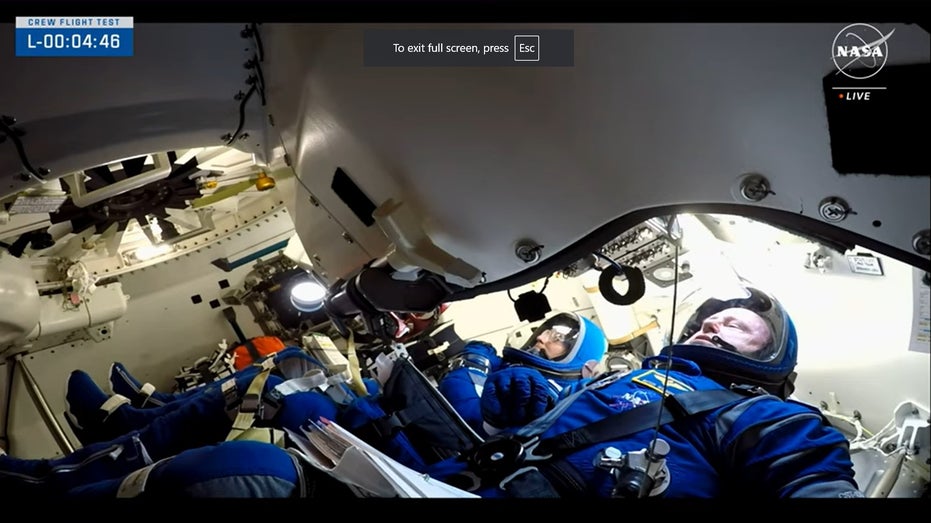The country will hear directly from NASA astronauts Butch Wilmore and Suni Williams for the first time since the duo left earth on June 5 on Starliner.
The astronauts will speak from space at 11 a.m. They were on Boeing’s first manned expedition to the International Space Station (ISS) since the private aeronautics company and NASA agreed to a $4.2 billion public-private partnership in 2014.
Helium leaks in the propulsion system and faulty thrusters turned a week-long mission into an indefinite stay in space.
The spacecraft is currently docked on the ISS, while engineers fix the issues and “collect data” to improve the spacecraft, Boeing and NASA officials said.
STARLINER WAS ASTRONAUTS’ ‘LIFEBOAT’ IF SHATTERED RUSSIAN SATELLITE HIT SPACE STATION
They’ve stressed that the astronauts aren’t stranded, and there’s no race against the clock to bring them home.
Chloe Mehring, the Starliner flight director who coordinated the power-up actions with Wilmore and Williams, said on July 3, “Starliner is healthy, and no anomalies were written against the spacecraft.”
BOEING DISCUSSES WHY ASTRONAUTS REMAIN IN SPACE
“We updated some products on board to support the continued docked duration through the month of July and through the higher positive beta periods we are approaching,” Mehring said.
After early July fixes, Wilmore said, “Good news. Great work. Copy all,” over the ISS Space-to-Ground loop, according to NASA’s July 3 press release.
Boeing and the Elon Musk-funded SpaceX programs are pivotal players in NASA’s Commercial Crew Program (CCP), which would allow NASA to send astronauts and cargo to the ISS without relying on Russia.
The CCP started under former President Obama in 2010, a year before NASA retired the Space Shuttle after 30 years.
TAKE COVER: A RUSSIAN SATELLITE IMPLODES
To get cargo and astronauts to the ISS, the U.S. has relied on Russia, spending about $90 million per astronaut for each round trip.
In 2014, Boeing and SpaceX were awarded contracts with NASA after a lengthy competition, bringing the average cost down to under $70 million per astronaut.
SpaceX has had multiple successful manned launches since its first in 2020.
Starliner’s June 5 launch was Boeing’s first manned expedition to the ISS.
Source
